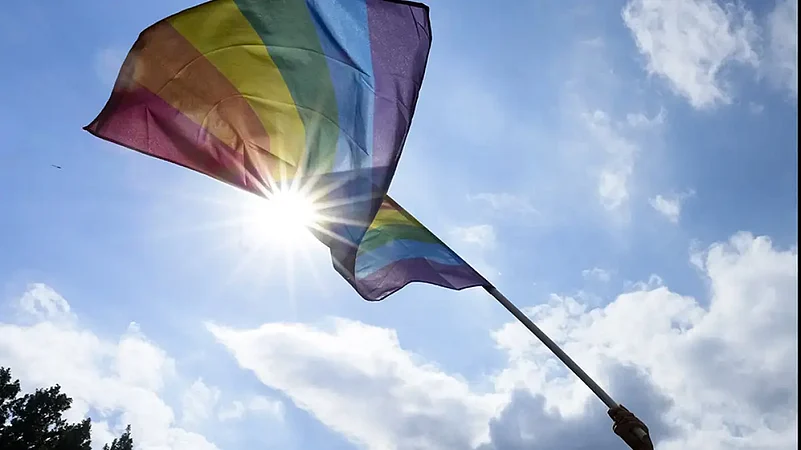A Constitution bench of the Supreme Court will begin to hear a clutch of petitions seeking legal recognition of same-sex marriage for the second day in a row, the Centre on Wednesday asked states to offer views on the issue within 10 days amid the hearing on requests to validate it. The Centre urges the apex court that states, the Union Territories be made parties to proceedings on pleas.
In an affidavit filed in the apex court, the Centre has said it has issued a letter on April 18 to all the states inviting comments and views on the "seminal issue" raised in the pleas.
Solicitor General Tushar Mehta, appearing for the Centre, requested a five-judge Constitution bench headed by Chief Justice D Y Chandrachud that states be made parties to the proceedings.
"It is, therefore, humbly requested that all states and Union Territories be made a party to the present proceedings and their respective stance be taken on record and in the alternative, allow the Union of India, to finish the consultative process with the states, obtains their views/apprehensions, compile the same and place it on record before this court, and only thereafter adjudicate on the present issue," the affidavit said. "It is submitted that Union of India, has issued a letter dated April 18, 2023 to all states inviting comments and views on the seminal issue raised in the present batch of petition," it said.
Yesterday, the hearing began on a heated note with the government saying that it will re-examine whether to participate in the proceedings or not.
The primary arguments raised before the bench led by Chief Justice of India DY Chandrachud and also comprises Justices Sanjay Kishan Kaul, S Ravindra Bhat, PS Narasimha and Hima Kohli pertained to declaring same-sex marriages to be at par with heterosexual marriages. The arguments were raised by senior advocate Mukul Rohatgi appearing for the petitioners and senior advocate Rakesh Dwivedi opposing the same.
Following the arguments, the Supreme Court observed that the very notion of a man and a woman is not “an absolute based on genitals”, while discussing the ambit of gender and whether it expanded beyond the biological sex of a person.
Senior advocate A M Singhvi, appearing for one of the petitioners, said same-sex marriage was a narrow term and, if the court were to grant marriage equality to gay couples, it should be for consenting adults across "bodily gender and sex spectrum".
"There is a whole range of combinations of persons with special biological features. It is not only men and women. One category is ‘sex’ and the second category is ‘gender’.
"So a male body can be imbued by female psychological instincts and vice versa and there is LGBTQIA++ (lesbian, gay, bisexual, transgender, queer, questioning, intersex, pansexual, two-spirit, asexual, and ally) This ‘++’ has a whole spectrum of hues and colours,” he said.
Solicitor General Tushar Mehta, appearing for the Centre, countered Singhvi saying the “biological gender was the gender of a person”.
On the issue of using the word ‘person’ in the Special Marriage Act in place of ‘a man and a woman’, the law officer said the legislative intent throughout has been a relation between “a biological male and a biological female".
The bench intervened and said, "The very notion of a biological man is absolute...”.
The law officer said "Biological man means biological man, there is no notion."
“There is no absolute concept of a man or an absolute concept of a woman at all. It is not a question of what your genitals are. It is far more complex, that's the point. So, even when the Special Marriage Act says man and woman, the very notion of a man and a woman is not an absolute based on genitals,” said the bench.
The court also observed that it would not go into personal laws and will only consider petitions under the Special Marriage Act (SMA). Since personal affairs like marriages, succession, and divorce are governed by laws specific to religions in India, different communities have different personal laws. There also exists a secular SMA under which marriages can also be registered. Most of the petitions are considered either the Hindu Marriage Act (HMA) or SMA.
Successive Indian governments have repeatedly challenged any calls to recognise same-sex marriages, saying that allowing so would harm the social fabric and cultural ethos of India. Recently, the BJP-led government said the petitions represent "urban elite" views. Earlier, the Centre said in court that same-sex marriages would "create havoc" in society.
(with PTI inputs)


























